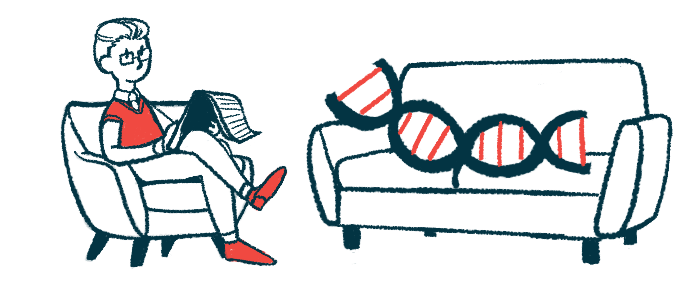FAST, UPenn team to advance gene therapy candidate for Angelman
Foundation has sponsored studies at Gene Therapy Program since 2017

The Foundation for Angelman Syndrome Therapeutics (FAST) has teamed up with the University of Pennsylvania to develop an investigational gene therapy for Angelman syndrome.
The nonprofit has sponsored preclinical research at the Gene Therapy Program at the University of Pennsylvania since 2017 to develop a gene therapy for Angelman syndrome that can be delivered to the central nervous system (CNS), made up of the brain and the spinal cord. Under the terms of the new research and development agreement, the foundation will work closely with researchers to accelerate advancing a promising candidate to clinical trials.
The experimental therapy would be delivered directly into the CNS using a harmless adeno-associated virus (AAV).
“FAST and [the gene therapy program] have made an instrumental decision on a promising human clinical candidate to further advance this gene therapy forward quickly and safely for the potential treatment of Angelman syndrome,” Jim Wilson, MD, PhD, director of the Gene Therapy Program, said in a press release. Wilson is also professor and director at the Orphan Disease Center, and professor of medicine and pediatrics in the Perelman School of Medicine at the University of Pennsylvania.
Angelman syndrome is caused by the absence or malfunction of the ubiquitin protein ligase E3A (UBE3A) gene.
In certain brain regions, only the UBE3A gene copy inherited from the mother is active, whereas the gene copy inherited from the father is turned off. If the maternal gene is dysfunctional, brain cells lack instructions provided by the gene, leading to the disease’s symptoms. The disease is associated with a high clinical unmet need, including developmental delay, motor impairment, communication issues, and seizures.
What will gene therapy do for Angelman syndrome?
Gene therapy is an experimental method that either inactivates a defective gene or replaces it with a healthy copy to slow or prevent disease progression.
For Angelman syndrome, gene therapy is focused on introducing a healthy copy of the UBE3A gene into nerve cells or reactivating the paternal copy.
Preclinical data back advancing a human clinical candidate into studies that would support an investigational new drug application needed for the first-in-human clinical trials.
“To see the promising results of this robust preclinical data package, based on research that FAST has been so diligently funding for years, is incredibly gratifying,” said Allyson Berent, FAST’s chief science officer. “It is our job to ensure that excellent science is always advanced as safely and efficiently as possible, and that we seize every opportunity to potentially benefit those living with Angelman syndrome.”
FAST supports research, with the goal of promoting treatments that could be used in clinical practice. The Foundation started GeneTx, which developed the experimental therapy GTX-102 that targets and blocks the molecule that keeps the paternal copy of the UBE3A gene inactive.
A Phase 1/2 clinical trial (NCT04259281) is evaluating the safety and tolerability of GTX-102 by injection into the spine in children ages 4-17 with Angelman syndrome. Recruitment is ongoing at multiple sites in the U.S.







